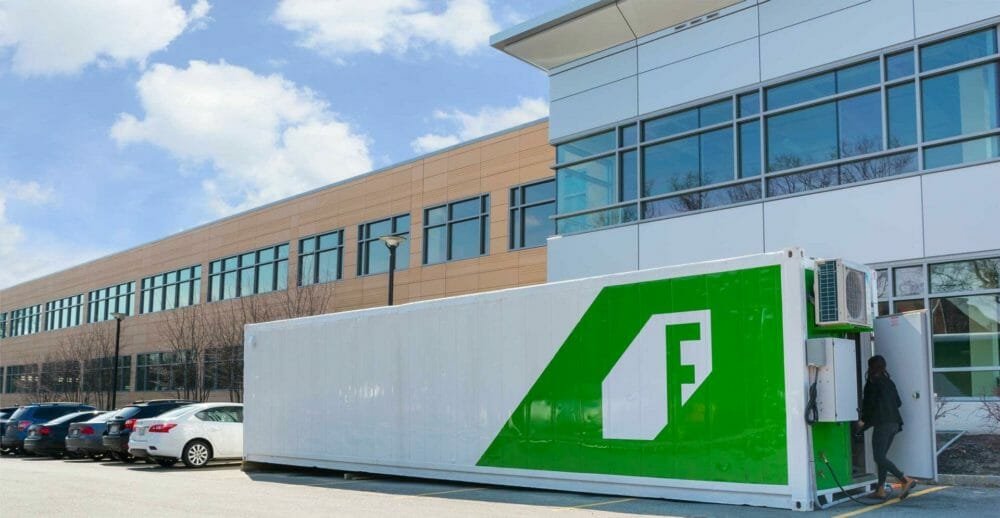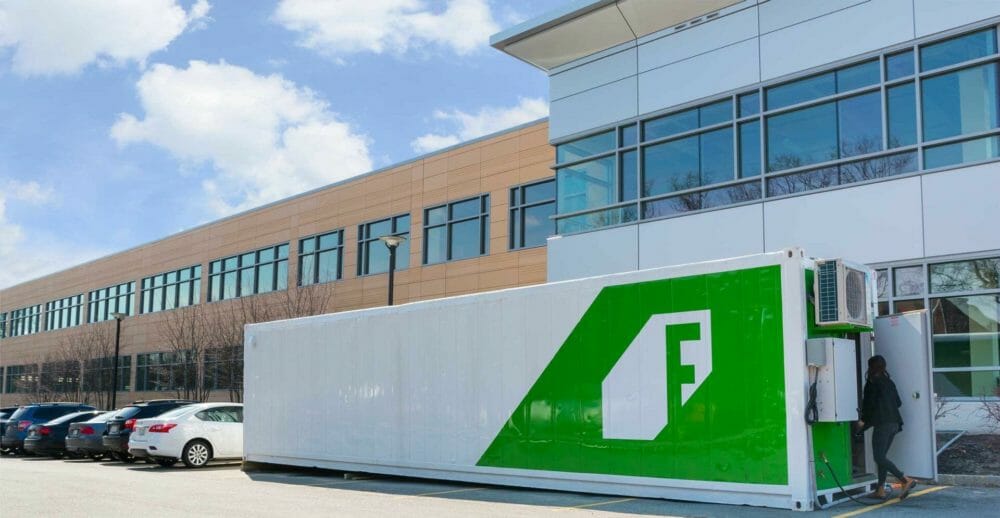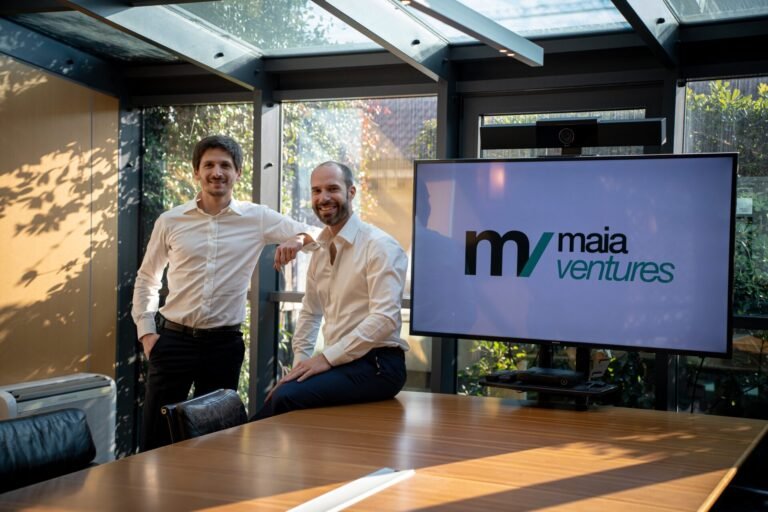
Last week, Ottawa, Canada–based vertical farming company Growcer announced it had won the bid to acquire the assets of Freight Farms, a US–based company offering a similar type of container-based vertical farm.
Freight Farms ceased operations on April 30 after a period of financial strain that included layoffs and a scrapped merger.
Support and service for existing Freight Farms customers also ended at that time, which the team at Growcer immediately took note of.
“These people have made really large investments into controlled environment agriculture, and they were looking for someone to carry the torch, to offer support, software, parts, and all the things that they need to continue their operations,” Growcer cofounder and CEO Corey Ellis tells AgFunderNews.
“Our goal is to provide a seamless transition for all these customers.”
Growcer builds modular vertical farms in shipping containers, operating around 125 of these across Canada, with a few in the US as well.
Beyond supporting existing customers, Growcer saw an opportunity to scale in bidding on Freight Farms’ assets, according to Ellis.
“A lot of these customers have one farm and they’re thinking of adding second or third or fourth, and so we saw that as an opportunity for this business to grow,” he notes.
Freight Farms also operated in all 50 US states in addition to many other countries around the world, making the deal an opportunity to accelerate Growcer’s existing expansion plans in the US and beyond.
The company will acquire all of Freight Farms’ assets, which includes intellectual property, customer lists, and physical inventory, in a $2.6 million transaction expected to close by the end of the month.

Vertical farming is ‘not a silver-bullet solution’
Vertical farming is sometimes touted as a solution in search of a problem. This was not the case for Growcer, which Ellis and cofounder Alida Burke (also the CFO) started after working in the Arctic and seeing how difficult it was to get food to that region.
“Food can’t be shipped in because there are no roads that go [to those regions]. Everything is flown in, which makes things very expensive, poor quality, very poor nutrition,” explains Ellis.
Seeing multiple containers around the region leftover from other supply deliveries, the pair decided it was a big opportunity and converted one of them to a year-round greenhouse growing greens in minus-50-degree temperatures.
“Once you cut your teeth doing that, everything else seems easier in comparison.” says Ellis.
He adds that Growcer, which is 10 years old, has been bootstrapped for most of its lifespan, only raising a small Series A last year led by building services provider Modern Niagara and cleantech investors Jeff Westeinde and Jeff York.
He readily points out that vertical farming is “not a silver-bullet solution” for agriculture.
“A lot of the larger players that have failed in this space oversimplified and tried to be too many things to too many people,” he says of the sector’s past heavyweights.
Most of vertical farming’s high-profile companies sank hundreds of millions of investor capital into operations before closing or declaring bankruptcy. Aerofarms, Bowery, InFarm, and Plenty are just a few names on that list.
Ellis notes that Growcer is very clear with people about what is and is not possible in vertical farming.
“This farm doesn’t make money in every climate and market in the world,” he says, adding that it works in “specific places where the market for produce has certain economics, the price of power looks a certain way, and the price of labor works a certain way.”
“You need that magic combination of ingredients, and that doesn’t sound good to a VC that wants the largest total addressable market humanly possible.”

‘Enduring’ support for growers
Growcer will bring back some former Freight Farms team members as part of the takeover, in addition to offering ongoing support to customers.
Freight Farms customers will also get access to additional products beyond the actual container farms.
“We have a prefab food processing space that plugs in multiple container farms together. We have walk-in fridges, freezers, and root cellars. They all are meant to make up a modular food hub beyond just growing the produce: storing, preserving, and processing some food,” says Ellis.
As it further integrates Freight Farms into the Growcer business, the latter will also implement what Ellis calls “cost recovery” measures.
“Certain things Freight Farms did cost a lot of money [for the company] and were completely free [for the customer]. That’s not necessarily a sustainable way to build a business.”
Freelance consultants brought in before the acquisition, when Freight Farms was still clearing bankruptcy, had put a price tag on offering support, which Growcer will implement. While he didn’t not share exact numbers, Ellis said the cost of that support was “on par with other such support offerings on the market.”
At the end of the day, such measures are about ensuring support for growers, both now and in 20 years’ time.
“We’re building this business for customers,” says Ellis. “I would say that’s the core fundamental belief, and how we’ve been different.”
The post Freight Farms customers find a new home as vertical farming co Growcer acquires the former’s assets appeared first on AgFunderNews.




